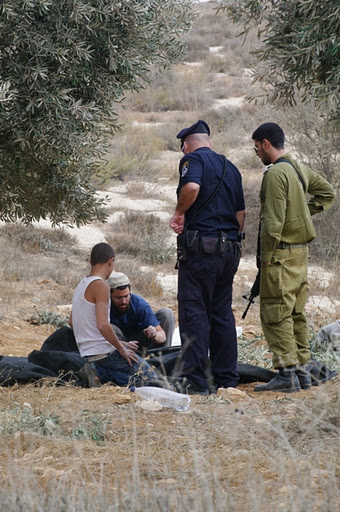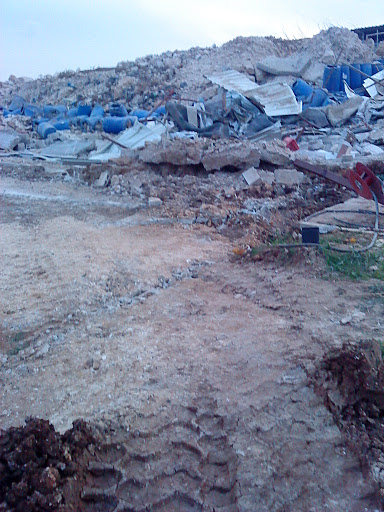Month: October 2011
-
Settlers desperately try to fit the role by stealing olives
by Aida Gerard 25 October 2011 | International Solidarity Movement, West Bank On Tuesday, illegal settlers from the Susiya settlement harvested the olive trees belonging to the Abu Sabha family from Susiya and Yatta, South Hebron Hills. Around 12 o’ clock a villager from the area spotted two settlers picking olives from the land of…
-
Anata falls victim to militarized, illegal settlement once again
by Jenna Bereld 26 October 2011 | International Solidarity Movement, West Bank When Mohammad woke up on Tuesday, he still did not know about the Israeli forces or the bulldozers that were on their way to uproot his trees and demolish his entire farm. But before the day was over, all of his property was erased and…
-
Harvesting olives as a statement of resistance
by Ben Lorber 24 October 2011 | The Electronic Intifada Palestinian villages across the West Bank are undertaking their annual olive harvest this October, amid fears of harassment and violence from Israeli settlers and soldiers. While the Palestinian olive harvest is a tradition that stretches back countless generations, the phenomenon of settler violence during the olive…


